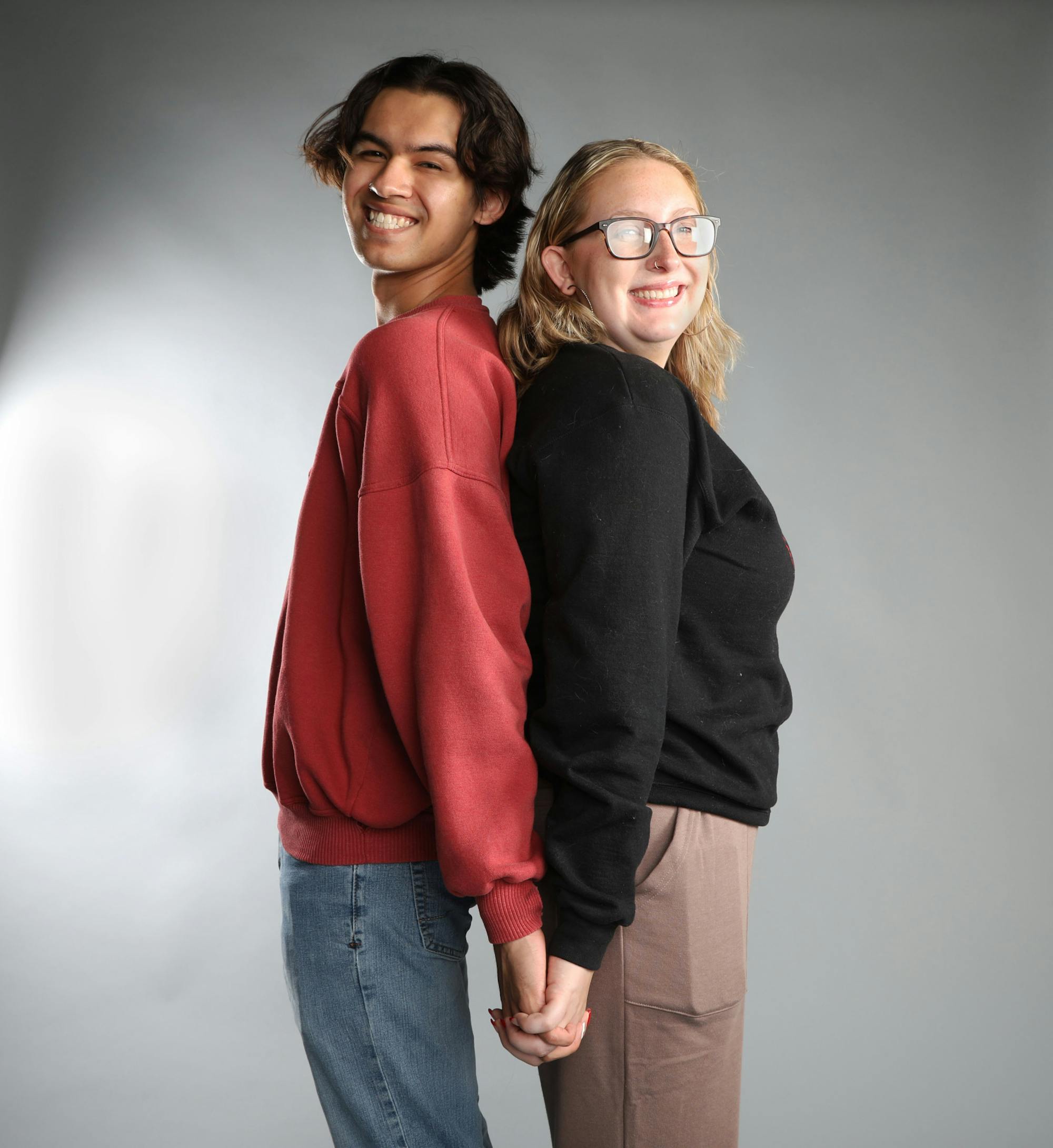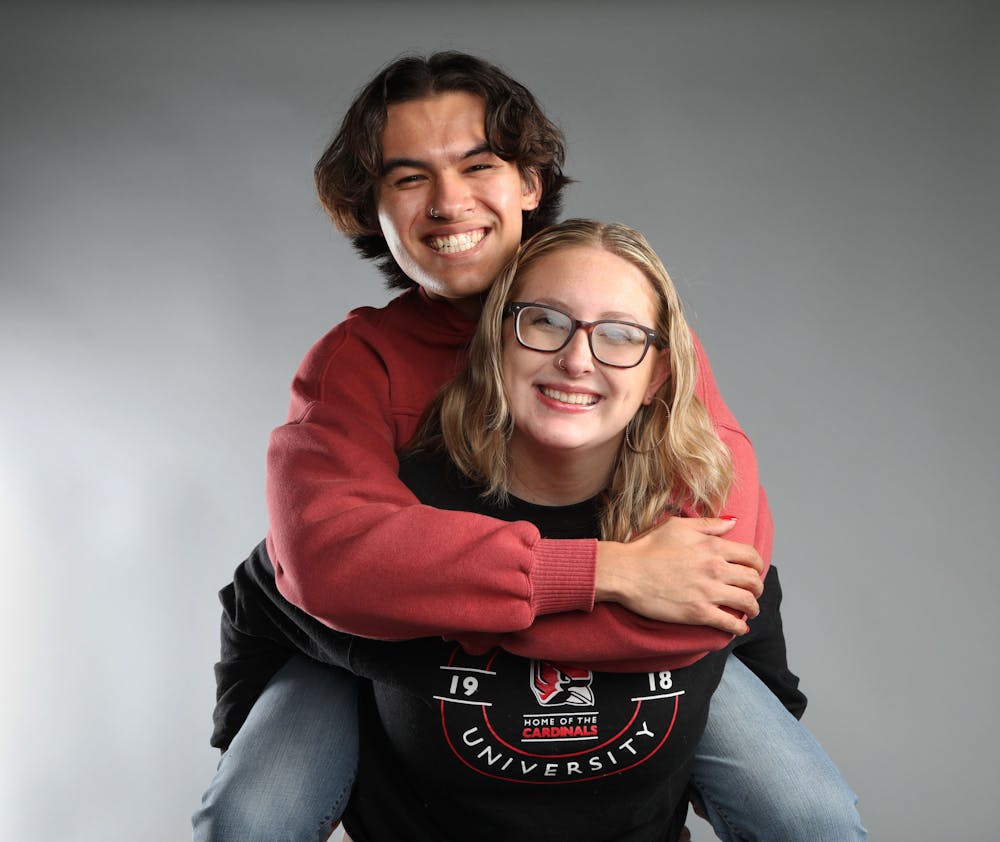Second-year criminal justice major Brynn Hensley and 2023 Ball State University graduate Ian McCurdy met on Tinder in August 2022. McCurdy’s Tinder profile had pictures of him at concerts and taking photos. From first impressions, Hensley said she could tell McCurdy was an adventurous person.
Hensley had a similar profile, mostly consisting of photoshoots. McCurdy thought she seemed fun and creative.
When they first met, neither of them knew if they wanted to be just friends or something more. McCurdy picked up Hensley from her dorm and drove to his house to hang out and see where things could go. After talking for two hours, they knew there was a connection.
Out of a group of 10, three people have used a dating app, with Tinder being the most used, according to the Pew Research Center. However, out of those three people, only one has found their significant other by using a dating app.
The 2022 data has also shown that members of the LGBTQ+ community are more likely to use a dating app than someone who identifies as straight. Men and adults who have never been married before are more likely to use a dating app than those who have been married in the past.
Ball State University Sociology Professor Melinda Messineo said online dating makes it easier to meet a variety of different people.
“Online dating apps make it possible to meet people completely outside of your social spheres,” Messineo said via email. “This increases the possibility of meeting people with shared interests that can increase relationship success.”

Hensley and McCurdy decided to start just being friends to see where it led. During this time, both of them continued talking to other people. Even after they stopped talking to other people, they still were not ready to jump into a relationship.
The relationship began four months after their first meeting.
Looking back, they agreed if they jumped into a relationship when they first met, their bond would not be where it is today.
“Brynn was able to just listen to me and talk to me,” McCurdy said. “I have really good friends who I can talk to, but it was a deeper connection. It kind of woke me up to be like, ‘Maybe I do want to be in a relationship with somebody who is that way.’”
For Hensley, what made her want to pursue the relationship was the trust she felt with McCurdy. With past relationships, she did not feel her emotions were being validated. McCurdy has helped her feel like she can open up to people again.
“When he would comfort me and tell me everything's OK,” Hensley said. “It was the first time I really believed and trusted that I could confide in people.”
According to a study from Pew Research Center, women and those who are ages 50 and older lean more toward these apps not being very safe. People in every category agreed dating apps should have people go through background checks.

Messineo said while dating apps can bring people together who might not have met otherwise, there is also a higher chance of people not being honest about themselves online. Being catfished or scammed is also a concern among those looking to try these apps. The study concludes about half of dating app users think they have come in contact with a scammer.
Not knowing if someone you like feels the same way is what a lot of people face when meeting in person. McCurdy said dating apps take that fear away.
“That is probably the single greatest thing about dating apps,” McCurdy said. “Especially for a lot of people who struggle with self confidence and being able to approach people.”
In terms of how using a dating app to meet has affected their relationship, Hensley said she feels it has no effect. If they had not met on Tinder, she believes they would have met at one of McCurdy’s house parties. Either way, Hensley and McCurdy feel it would have resulted in the same outcome.
If you feel like dating apps are not working for you, Hensley suggests keeping an open mind.
“You never know who you’re going to find,” Hensley said. “I never ever expected to meet the love of my life on Tinder.”
Contact Lily Jones with comments at lkjones3@bsu.edu.





